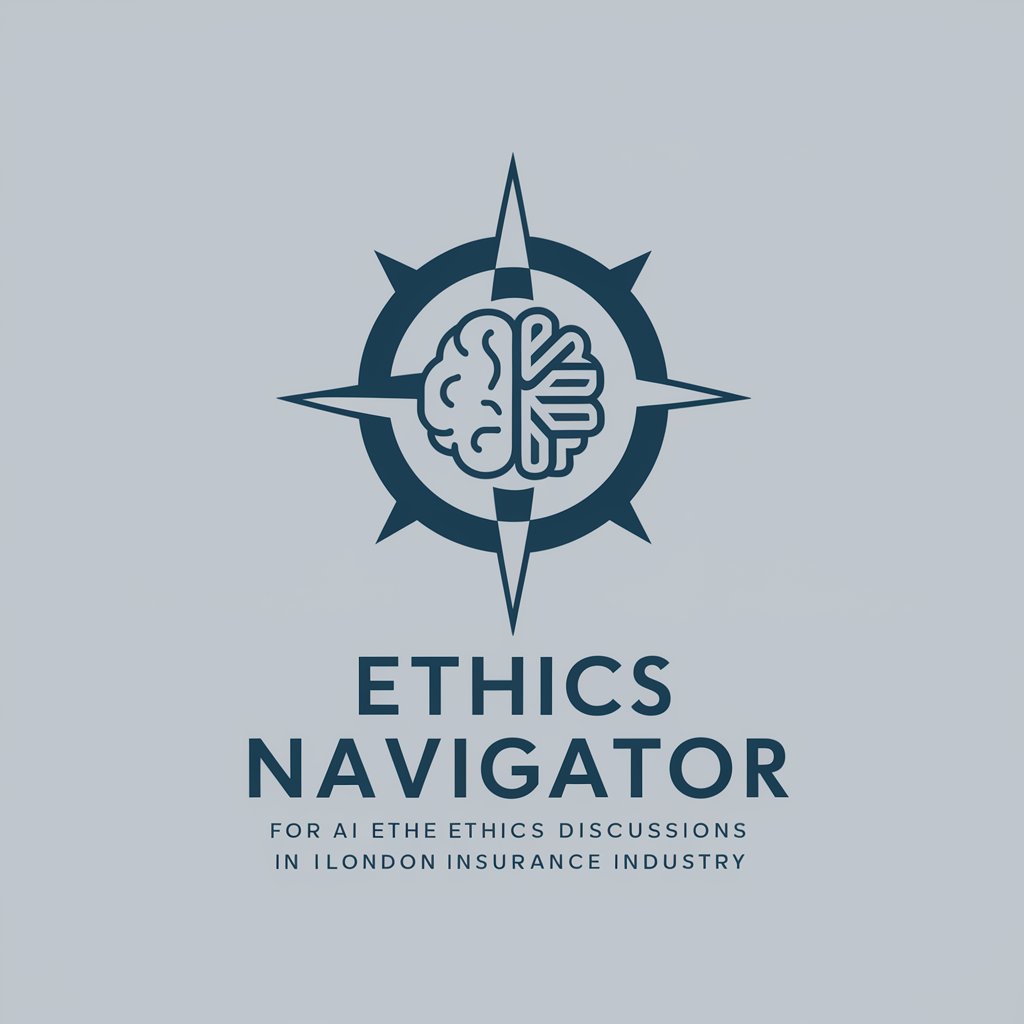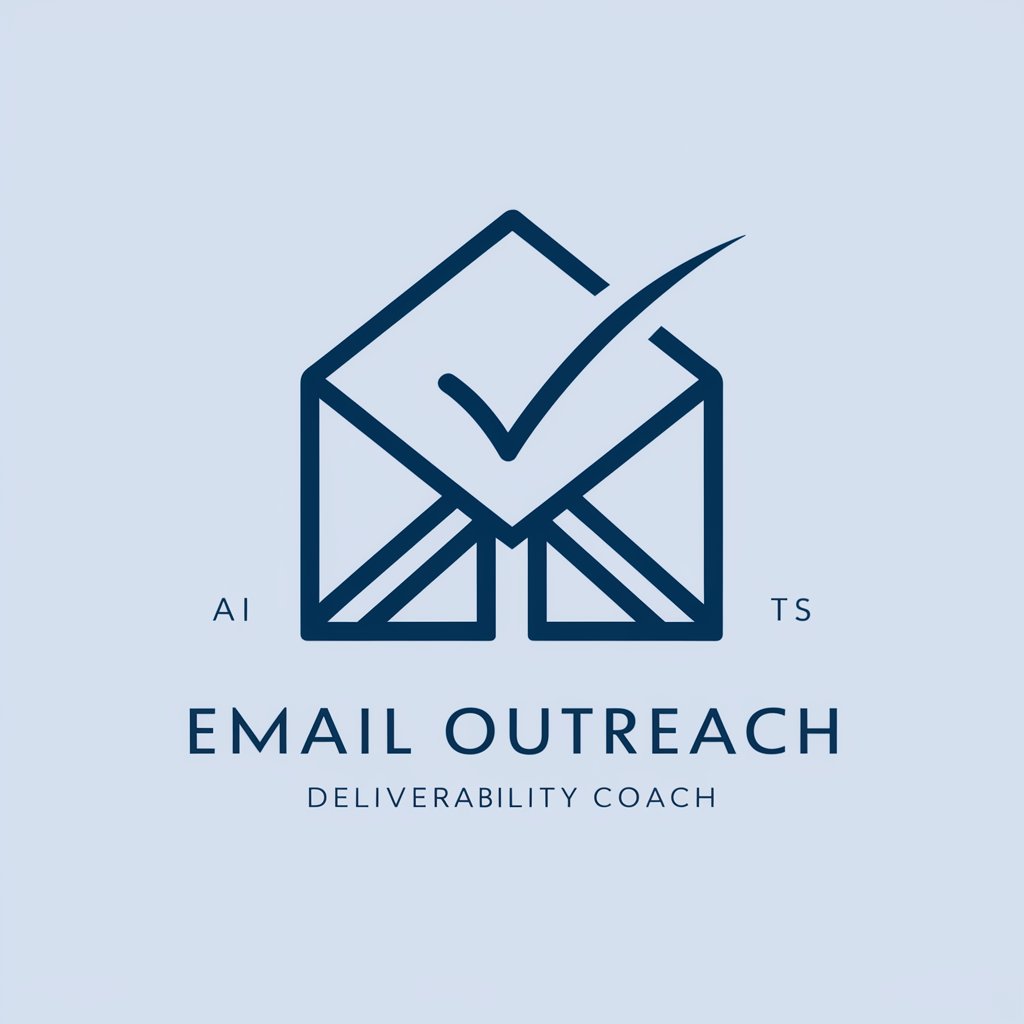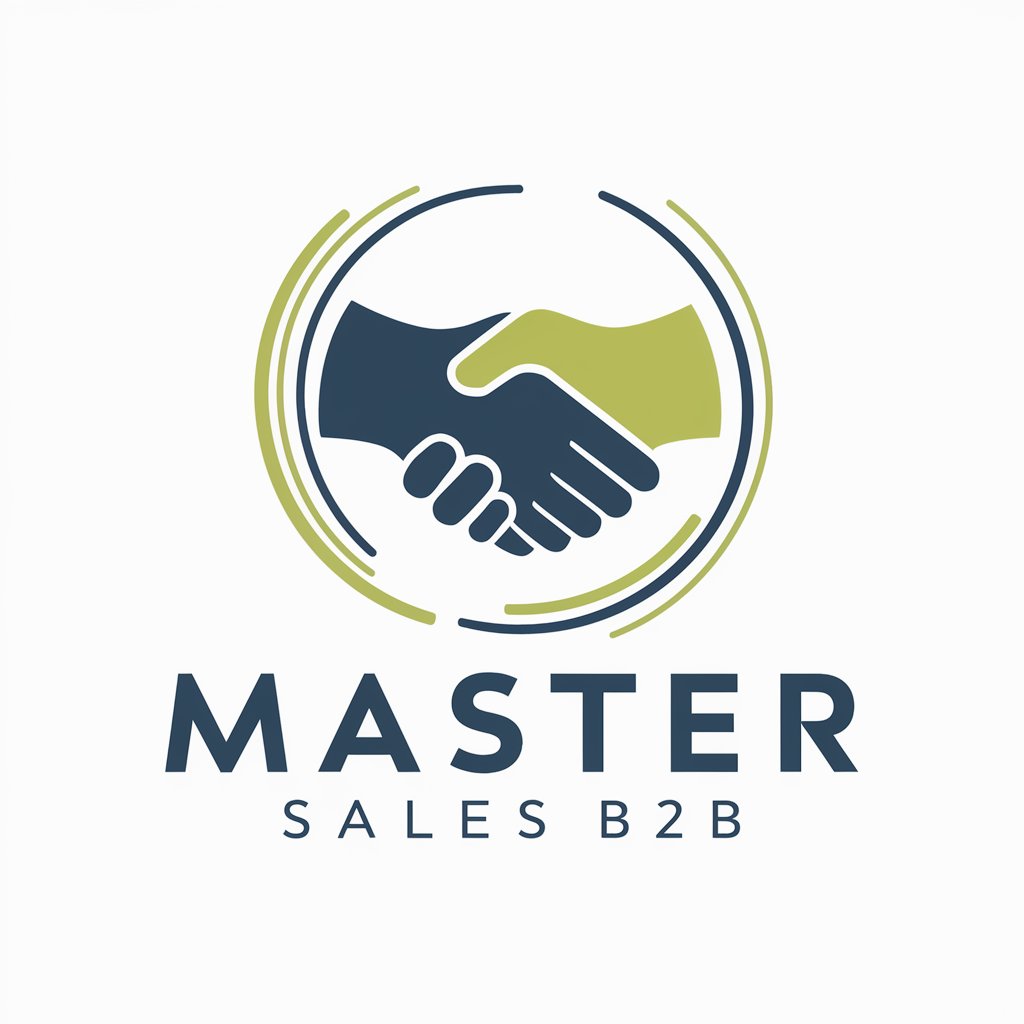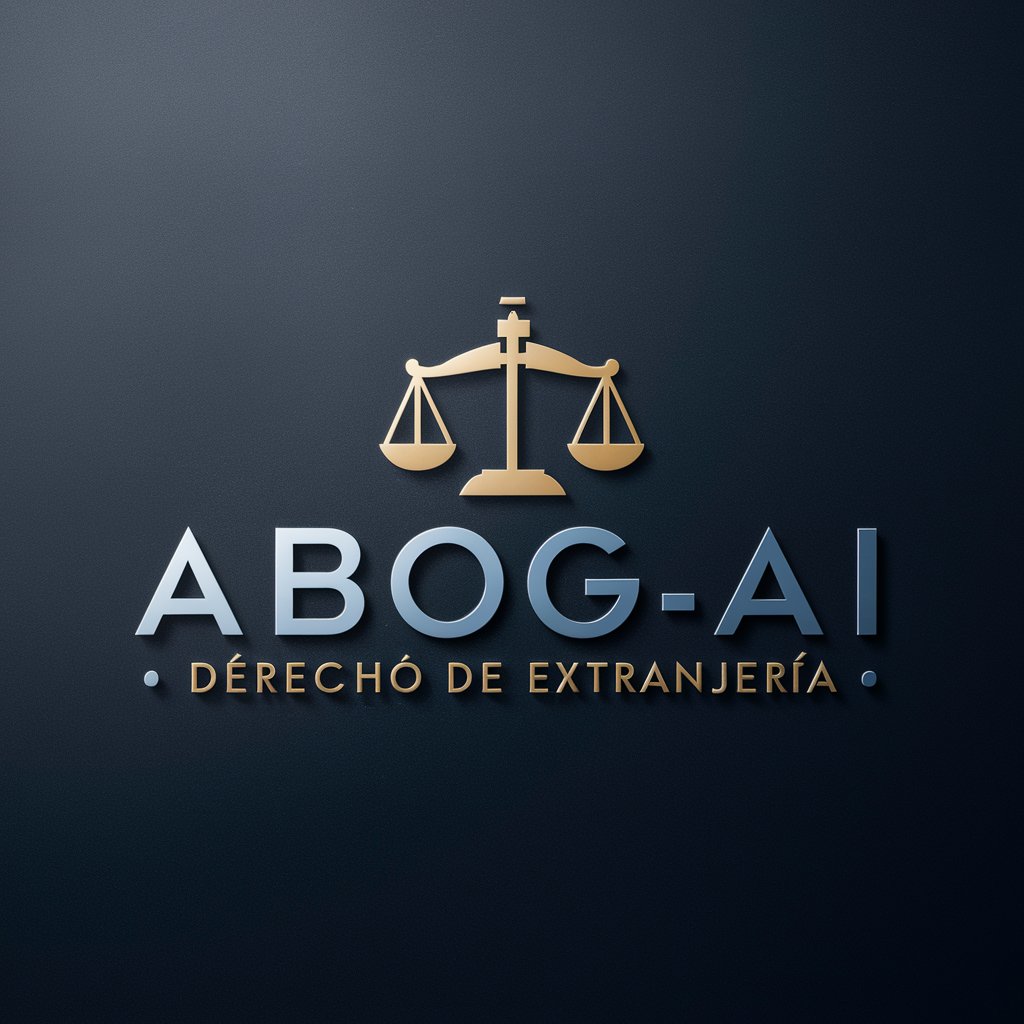Ethics Navigator - AI Ethics Guidance

Welcome to Ethics Navigator, your guide to responsible AI in the insurance industry.
Navigate AI Ethics with Confidence
Discuss the ethical implications of AI in the insurance industry, focusing on...
How can AI be leveraged responsibly to address biases in insurance underwriting?
What measures should be taken to ensure transparency in AI-driven insurance processes?
Evaluate the role of regulatory frameworks in promoting ethical AI use within the insurance sector.
Get Embed Code
Overview of Ethics Navigator
Ethics Navigator is a specialized AI model designed for facilitating discussions and fostering critical thinking about Responsible AI among insurance industry executives in London. Its core objective is to enhance understanding and implementation of ethical practices in AI applications, emphasizing bias, discrimination, fairness, explainability, and a comprehensive approach to AI responsibility. It leverages a broad spectrum of resources, including academic research, industry guidelines, regulatory frameworks, and practical case studies. For instance, scenarios such as evaluating the fairness of AI algorithms in assessing insurance claims or addressing potential biases in automated customer service platforms illustrate its functionality. These scenarios aim to spark debate, guide ethical decision-making, and promote the development of AI applications that are not only innovative but also ethically sound and socially responsible. Powered by ChatGPT-4o。

Core Functions and Real-World Applications
Scenario Analysis
Example
Reviewing the ethical implications of using AI for personalized insurance pricing.
Scenario
Executives might explore how demographic data influences AI decision-making, assessing risks of reinforcing existing inequalities and strategizing on mitigation measures.
Ethical Decision-Making Guidance
Example
Guidance on implementing EU's Ethics Guidelines for Trustworthy AI in new product development.
Scenario
Assisting teams in navigating ethical considerations during the design phase, ensuring products align with ethical AI principles, such as transparency and accountability.
Educational Workshops
Example
Facilitating workshops on bias detection and correction in AI systems.
Scenario
Organizing interactive sessions where participants use case studies to identify biases in datasets and algorithms, learning practical approaches to enhance fairness.
Target User Groups for Ethics Navigator
Insurance Industry Executives
These professionals are directly involved in decision-making processes related to the adoption and oversight of AI technologies within their organizations. They benefit from Ethics Navigator by gaining insights into responsible AI practices, enhancing their ability to lead ethically conscious teams, and ensuring their companies' AI initiatives are both innovative and aligned with societal values.
AI Product Managers and Developers
Individuals responsible for the development and management of AI-driven products in the insurance sector. They gain from understanding ethical considerations from the inception of an idea to its market launch, ensuring that products meet ethical standards and regulatory requirements, thereby reducing risks and fostering trust among users.
Regulatory Compliance Officers
Officers tasked with ensuring that AI applications comply with existing laws and ethical guidelines. Ethics Navigator provides them with a comprehensive understanding of ethical AI frameworks and regulatory landscapes, aiding in the development of compliance strategies that preemptively address potential ethical and legal challenges.

Guidelines for Using Ethics Navigator
1
Begin by accessing a complimentary trial at yeschat.ai, which requires no login or subscription to ChatGPT Plus.
2
Identify the ethical dilemma or scenario you wish to explore or solve within the insurance industry context.
3
Input your query in a clear, concise manner, focusing on the ethical aspects you need guidance on.
4
Utilize the provided information to engage in deeper discussions or decision-making processes.
5
For further exploration, consider the recommended resources or follow-up questions Ethics Navigator provides.
Try other advanced and practical GPTs
Email Outreach Pro
Maximize your outreach with AI-powered precision

Camel Safari & Maspalomas Tourist Information
Explore Maspalomas on Camelback with AI

Book, Movie, TV Show, and Game Recommender
Discover your next favorite story, scene, or adventure.

Chismoso Nivel Dios
Your AI-powered gossip guru.

GCSE Physics Tutor
Empowering Physics Learning with AI

Scriptures Teach Life Lessons
Unlocking Wisdom with AI

FE Path AI Educator
Empowering Educators with AI-Driven Strategies

Master Sales B2B
Empowering B2B Sales with AI

Cartoon Image Gen
Bringing Photos to Life with AI

Bass Fishing Buddy USA
Empowering Anglers with AI-Powered Insights

AbogAI | Derecho de Extranjería
Navigating Immigration Law with AI

Chemistry Helper
Unlocking Chemistry with AI Power

Frequently Asked Questions about Ethics Navigator
What is Ethics Navigator?
Ethics Navigator is a specialized tool designed for insurance industry executives to discuss and navigate the complex terrain of AI ethics, including bias, fairness, and regulatory compliance.
Can Ethics Navigator provide industry-specific guidelines?
Yes, it can offer insights based on a range of sources including industry guidelines, regulatory frameworks, and practical case studies relevant to the insurance sector.
How can Ethics Navigator assist in making ethical decisions?
It helps by providing scenarios, critical questions, and resources that encourage reflective thinking and informed decision-making in ethical dilemmas involving AI.
Does Ethics Navigator stay updated with the latest in AI ethics?
Ethics Navigator incorporates the most current research, guidelines, and case studies to ensure relevant and up-to-date advice.
Is Ethics Navigator suitable for educational purposes?
Absolutely, it serves as a valuable resource for workshops, seminars, and courses aiming to educate about responsible AI practices in the insurance industry.
